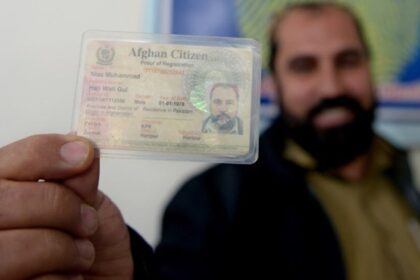RASC News Agency: The international medical organization Doctors Without Borders (Medicines Sans Frontiers, MSF) has sounded the alarm over the deteriorating health conditions of Afghanistani migrants in Pakistan, warning that the fear of arrest, detention, and forced deportation has paralyzed access to essential healthcare services. This mounting crisis, MSF notes, is compounded by the psychological toll of living under constant threat, especially among those suffering from chronic illnesses and mental health disorders. In a report released on Tuesday, July 15, MSF highlighted that since Pakistan began its mass deportation campaign in November 2023, thousands of Afghanistani refugees many with legal residency documents have been thrust into a state of limbo. Despite a temporary suspension of deportations for registered migrants until July 2025, fear remains pervasive. “We live in constant dread,” said one Afghanistani woman receiving care at an MSF health center in Balochistan. “We don’t dare leave the house. Our children can’t sleep. We’re waiting for the police to come knocking at any moment.”
MSF reports that this climate of fear has prevented countless migrants from seeking medical care. Many patients suffering from diabetes, hypertension, or other chronic illnesses have stopped visiting clinics altogether, afraid they’ll be apprehended en route. One migrant explained during a phone consultation: “I haven’t gone to the hospital in weeks. I’m in pain, but I’m more afraid of being arrested and sent back to Afghanistan.” The situation is even more dire for women. In conservative areas of Pakistan, women are only permitted to access public spaces when accompanied by a male relative. But as fear of arrest has immobilized entire families, many men now avoid public outings leaving women entirely cut off from medical services. According to MSF, this exclusion has had devastating consequences for thousands of women who require maternal and reproductive health services, particularly in migrant communities.
Jo Veebing, MSF’s Director of International Operations, described the unfolding humanitarian crisis as “catastrophic.” He stated: “These families have lived in Pakistan for years, even decades. Now they are losing their homes, their health, and their dignity. Many are unable to access medication, food, or even basic hygiene supplies. The emotional burden is suffocating.” The organization also warned that mass deportations are tearing families apart. Many deportees are sent back to Afghanistan a country that, under Taliban rule, offers no functioning health system, no protective infrastructure, and no hope for the most vulnerable. MSF’s country coordinator Stephan Mackey explained: “Returning to Afghanistan today means confronting a healthcare system that has all but collapsed. The Taliban have decimated public health services. There are no resources, no trained personnel, and no accountability. For patients who need continuous treatment for chronic illnesses, return means slow, preventable death.”
The Taliban regime, which promised governance and “order” following its takeover in August 2021, has instead presided over the complete deterioration of basic public services, including healthcare. Hospitals remain understaffed, medicine is scarce, and foreign humanitarian organizations operate under constant pressure, surveillance, and restriction. Women are barred from working in clinics or seeking treatment without a male guardian, further eroding healthcare access for half the population. Meanwhile, MSF reports that over 274,000 Afghanistani migrants were forcibly deported from Pakistan in the first half of 2025 alone. Since the beginning of the crackdown in late 2023, the cumulative number of deportees has now surpassed one million a staggering figure that threatens to overwhelm Afghanistan’s already broken health infrastructure.
Human rights organizations and global medical NGOs are now calling for urgent international intervention. They warn that, unless action is taken, Afghanistan will descend even further into a humanitarian abyss, with the Taliban’s draconian policies ensuring that the most vulnerable women, children, and the chronically ill are left to suffer in silence.






